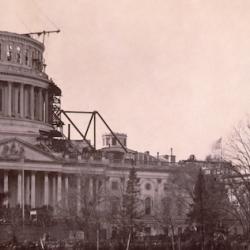With Saudi Arabia in the news following the murder of journalist Jamal Kashoggi, there’s an opening for rethinking the US relation with Saudi. The following is an excerpt from my 2012 Between Babel and Beast. Numbers and details may be somewhat outdated, but the main points stand.
In August 2011, the Pew Research Center released a report on global restrictions on religion. The Pew analysis divided restrictions on religious liberty into two categories. The analysis analyzes governmental efforts to control religious groups, prevent conversion, limit preaching and proselytizing, as well as laws prohibiting blasphemy, apostasy, and defamation of religion (Government Restriction Index, GRI).
The Pew survey also estimates unofficial social hostility promoted by individuals, private organizations and groups (Social Hostility Index, SHI), which measures mob violence, religiously-motivated crimes, physical conflict about conversions, harassment for wearing distinctive religious clothing, terrorist acts, and war. Both measures are based on a survey of various types of religious restrictions, and are summed up on a 1-10 scale.
Overall, 21% of the surveyed countries had a “High” (4.7-7.1) or “Very High” (7.2-8.3) rating in government restrictions on religion, but given the high populations of many of these countries, about 59% of the world’s population lives under Highly or Very Highly restriction conditions regarding religious freedom. 22% of the world’s nations have “High” or “Very High” ratings in the SHI, and that includes 48% of the world’s population.
One of remarkable things about this list is the number of U.S. “allies” that appear on the Pew Forum’s list of nations that place “Very High” and “High” restrictions on religion. In the “Very High” category are Egypt, Uzbekistan, Indonesia, and Saudi Arabia. The “Highly” restrictive nations include U.S. aid recipients Pakistan, Russia, India, Turkey, Kuwait, Yemen, Jordan, and America’s #1 aid recipient, Israel.
Though the Pew Forum study found that Muslims are persecuted in 117 countries, most of the nations that receive U.S. military aid are not restricting the religious freedom of Muslims. Many suppress Jews, and nearly all of them restrict the freedom of Christians of one variety or another, sometimes of every variety.
Oil-rich Saudi Arabia receives little direct military aid from the U.S., but it receives aid in many other forms. Since 1951, the U.S. has had a Military Training Mission in Saudi Arabia that provides training and other security services to the Saudi army. Military installations have been built with the aid of the U.S. Army Corps of Engineers. In 2007 Saudi Arabia received a military package worth $13 billion, part of a $60 billion package to middle eastern countries. The U.S. ambassador to the U.N. explained that the Saudis were getting aid because they “are not doing all they can to help us in Iraq.” It is, in short, a very expensive bribe.
It is a bribe to keep the oil flowing, a bribe to the Bush family’s “good friends” the Royal House of Saud (see Ungar, House of Bush, House of Saud). It is a large bribe to a Wahhabist regime that officially prohibits the practice of Christianity. There are somewhere between 500,000 and 1 million Catholics in Saudi Arabia, mostly Filipino and other Asian immigrants who take menial jobs that Saudis disdain (see Tom Farr, World of Faith and Freedom).[3]
Orthodox believers and Protestants are also residents. It is illegal for Christians to have Bibles and crucifixes, to build churches, wear religious symbols, or even hang Christian images in private homes, and Christians are arrested and beaten for violations. During 2010-2011, a number of incidents have occurred, all documented at persecution.org:
*In October 2010, twelve Filipino migrant workers were arrested at a Mass and charged with proselytizing.
*In March, two Indian Christians were beaten, arrested and sentenced to 45-day prison terms for attending a private prayer meeting. They were finally released after six months.
*In July, a Christian refugee from Eritrea, Eyob Mussie, was expelled from Saudi Arabia after being arrested for proselytizing. Initially, he was facing a death penalty. He may well be killed when he returns to Eritrea.
These isolated incidents are part of a larger pattern of suppression and intimidation. Saudi Arabia’s laws permit private worship by non-Muslims, but ban public worship, supposedly in conformity with the Prophet’s dying wishes. In practice, services “must remain small and inconspicuous. They must not occur regularly at a particular location, lest a church or other non-Muslim place of worship de facto be established.” “Religious police” or Mutawwa’in infiltrated church groups, all of whose services are “vulnerable to raids.” Few priests are allowed into the kingdom (Farr, 237).
The U.S. State Department is well aware of Saudi abuses. The Department’s own 2011 report on religious freedom in Saudi Arabia stated: “The laws and policies restrict religious freedom, and in practice, the government generally enforced these restrictions. Freedom of religion is neither recognized nor protected under the law and is severely restricted in practice. The country is an Islamic state governed by a monarchy; the king is head of both state and government. According to the basic law, Sunni Islam is the official religion and the country’s constitution is the Qur’an and the Sunna (traditions and sayings of the Prophet Muhammad). . . . The public practice of any religion other than Islam is prohibited, and there is no separation between state and religion. The government did not respect religious freedom in law, but generally permitted Shia religious gatherings and non-Muslim private religious practices. Some Muslims who did not adhere to the government’s interpretation of Islam faced significant political, economic, legal, social, and religious discrimination, including limited employment and educational opportunities, underrepresentation in official institutions, restrictions on religious practice, and restrictions on places of worship and community centers.”
Yet Saudi Arabia is still regarded as an “indispensable ally.” The U.S. rarely intervenes in defense of religious minorities, lest we lose what we view as a crucial friendly power in a critical region of the world. When Thomas Farr proposed to Saudi officials that they purchase buildings to rent to non-Muslim religious groups, condemn or criminalize the activities of the Mutawwa’in, and permit more priests to enter the country, U.S. officials showed “distinct discomfort” and the Saudi officials found themselves “called away to some other emergency” (Farr, 240).
Clearly, promotion of Christianity, or of religious freedom, does not determine our Saudi policy. Unsurprisingly, intertwined economic and strategic goals are paramount. We have great power, and we act like one. Worse, we pay deference to monsters. Saudi Arabia is a beast, but on whose back does Saudi Arabia ride?















